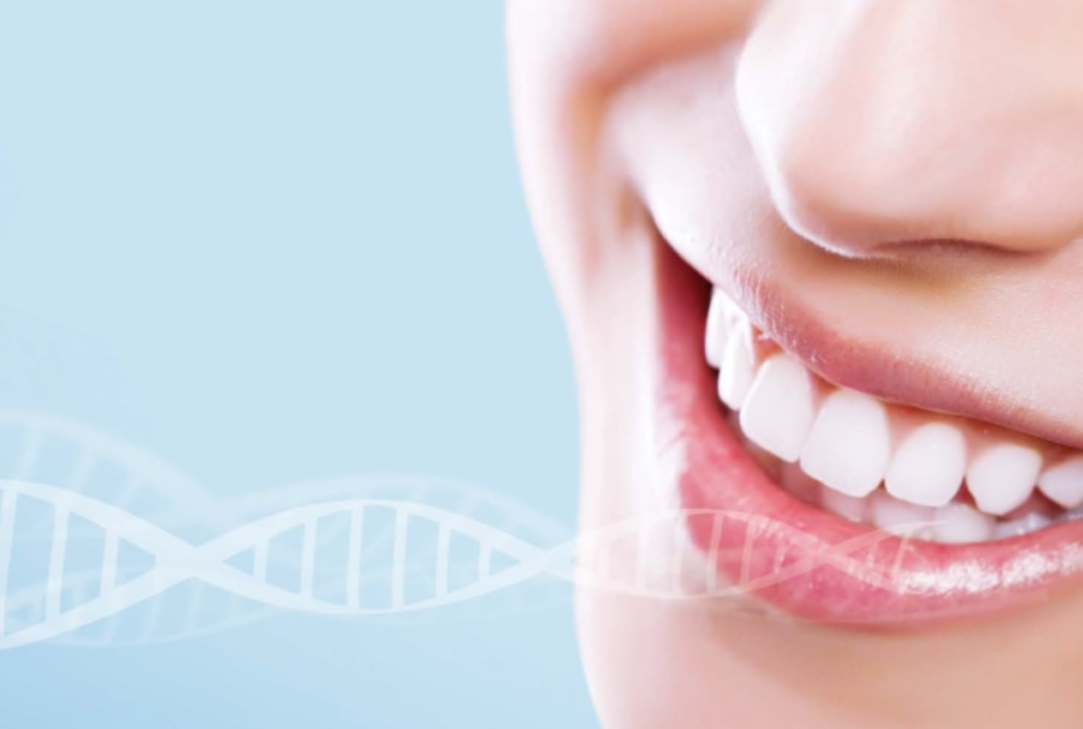At River District Smiles Dentistry, we are committed to providing comprehensive dental care that goes beyond just treating the symptoms of oral health issues. We believe in educating our patients about the various factors that can impact their dental well-being, and one crucial aspect often overlooked is the role of genetics in dental health. Understanding inherited dental conditions can help you take proactive steps to maintain your oral health effectively.
Genetics, often referred to as the blueprint of life, play a significant role in determining many aspects of our health, and dental health is no exception. While brushing, flossing, and regular dental check-ups are essential for maintaining a healthy smile, your genetic makeup can influence your susceptibility to certain dental conditions. Let’s delve deeper into this fascinating connection between genetics and dental health.
- Tooth Decay and Genetics
Tooth decay is one of the most common dental problems, and it can be influenced by genetic factors. The strength of your tooth enamel, which acts as a protective shield for your teeth, is largely determined by your genes. Enamel defects can make your teeth more vulnerable to cavities. Understanding your genetic predisposition to enamel issues can encourage you to be more vigilant about your oral hygiene and dietary choices.
- Gum Disease and Genetic Susceptibility
Gum disease, including gingivitis and periodontitis, can have a genetic component. Some people may inherit genes that make them more prone to developing gum problems. Genetics can influence the way your immune system responds to bacterial plaque, which can affect your risk of gum disease. If you have a family history of gum disease, it’s essential to inform your dentist so they can tailor your treatment and preventive measures accordingly.
- Tooth Alignment and Bite Issues
The alignment of your teeth and your bite can also be influenced by genetics. If your parents had orthodontic issues, such as crowded or misaligned teeth, there’s a higher likelihood that you may experience similar concerns. Fortunately, orthodontic treatments like braces and aligners can help address these genetic predispositions and give you a straighter, healthier smile.
- Oral Cancer Risk
Genetics can even play a role in your susceptibility to oral cancer. Some genetic variations may increase your risk of developing oral cancer when exposed to certain environmental factors, such as tobacco and alcohol use. Regular dental check-ups and early detection are essential for individuals with a higher genetic risk of oral cancer.
- Salivary Composition and Genetic Variations
Saliva plays a vital role in maintaining oral health by neutralizing acids, washing away food particles, and promoting enamel remineralization. The composition of your saliva can be influenced by genetics, affecting its ability to protect your teeth. Some people may produce saliva that is less effective at preventing tooth decay, making them more susceptible to cavities. Understanding this genetic predisposition can guide you in choosing the right oral care products and habits.
- Cleft Lip and Palate
Cleft lip and palate are congenital conditions that occur during fetal development and can have a significant impact on oral health. These conditions have a genetic component, and individuals with a family history may have a higher risk of passing them on to their children. Early intervention and specialized care are crucial for managing cleft lip and palate to ensure proper speech development and dental health.
- Genetic Testing and Dental Health
Advancements in genetic testing have made it possible to assess your genetic predisposition to certain dental conditions. While genetic testing for dental health is not yet widespread, it is an emerging field that holds promise. It can provide valuable insights into your unique genetic profile, helping your dentist tailor a personalized oral care plan to mitigate potential risks.
Genetics play a pivotal role in our dental health. Understanding your genetic predispositions can empower you to take proactive steps to maintain a healthy smile. At River District Smiles Dentistry, we are here to support you on your journey to optimal oral health. Our experienced team is ready to provide personalized care and guidance to address any genetic dental concerns you may have. Remember, genetics may set the stage, but your daily oral hygiene practices and regular dental check-ups are the spotlight in maintaining a beautiful and healthy smile.
Exploring the Genetic Puzzle of Dental Health
Genetics, the underlying code that makes each of us unique, extend their influence beyond our physical appearance and predispositions for certain diseases. They also play a crucial role in shaping our dental health. At River District Smiles Dentistry, we understand that you might have questions about how genetics impact your oral well-being. Let’s delve into these intriguing queries and uncover the intricate connection between genetics and dental health.
Do genetics affect dental health?
Yes, genetics can significantly influence your dental health. While daily oral hygiene practices and lifestyle choices still play a vital role, your genetic makeup can set the stage for various dental conditions. Here’s how genetics can impact your dental health:
- Tooth Enamel Strength: Genetics can determine the strength and thickness of your tooth enamel. Weaker enamel may increase susceptibility to cavities and enamel erosion.
- Gum Health: Genetic factors can affect how your immune system responds to bacterial plaque, influencing your risk of gum diseases like gingivitis and periodontitis.
- Tooth Alignment: Genetic factors can influence the alignment of your teeth, potentially leading to issues like crowding or misalignment.
- Salivary Composition: The composition of your saliva, which plays a crucial role in protecting your teeth, can be genetically determined. Variations in saliva composition can impact your risk of tooth decay.
- Oral Cancer Risk: Genetic variations can increase your susceptibility to oral cancer when exposed to certain environmental factors like tobacco and alcohol.
How much do genetics affect dental health?
The extent to which genetics affect your dental health can vary from person to person. Genetics lay the foundation, but environmental factors and personal dental care practices also play significant roles. It’s a combination of these factors that determines your overall oral health.
- Moderate to High Impact: In cases where individuals have genetic predispositions to conditions like weak enamel or gum disease, genetics can have a moderate to high impact on dental health. These individuals may need to be especially vigilant about their oral hygiene and dental care.
- Lower Impact: In some cases, genetic factors may have a lower impact, especially if you have strong enamel, healthy gums, and minimal genetic predispositions to dental conditions.
How do genetic factors affect oral health?
Genetic factors influence oral health through various mechanisms:
- Enamel Strength: Genes can determine the mineral content and structure of your enamel. Weaker enamel may lead to an increased risk of cavities and sensitivity.
- Gum Health: Genetic variations can affect the way your immune system responds to bacteria in the mouth, impacting your susceptibility to gum diseases.
- Tooth Alignment: Genetic factors can influence the size and shape of your jaw, which in turn can affect tooth alignment.
- Salivary Composition: Saliva composition is partly genetically determined. Variations can affect its ability to neutralize acids and protect teeth.
- Oral Cancer Risk: Genetic variations can increase your susceptibility to oral cancer when combined with environmental factors like smoking or alcohol use.
Why do you need to study genetics as a dentistry student?
Understanding genetics is vital for dentistry students for several reasons:
- Tailored Patient Care: Dentists need to consider a patient’s genetic predispositions when developing personalized treatment plans. This knowledge helps in early intervention and preventive measures.
- Diagnosis: Recognizing genetic factors that contribute to oral health conditions aids in accurate diagnosis and treatment planning.
- Research and Advancements: The field of dentistry is evolving, and genetic research is playing an increasingly significant role in developing innovative treatments and preventive strategies.
- Patient Education: Dentists can educate patients about their genetic predispositions, empowering them to take proactive steps for maintaining their oral health.
Genetics do indeed influence dental health, with varying degrees of impact. While genetics set the stage, your daily oral care practices and lifestyle choices remain pivotal in achieving and maintaining optimal dental health. Dentistry students are increasingly incorporating genetics into their training to provide more personalized and effective care to their patients, ultimately leading to brighter smiles and healthier lives. At River District Smiles Dentistry, we are dedicated to staying at the forefront of dental advancements to provide you with the best care possible, taking into account the genetic puzzle that is part of your unique oral health journey.


